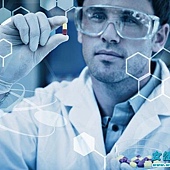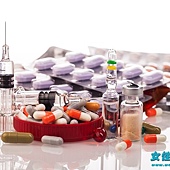Sick, you need to take medicine, but this kind of medicine is not to eat indiscriminately, if not properly used, not only can not cure the disease, but also make the disease worse. So the use of drugs, we must be cautious.
At ordinary times we often hear people talking about antibiotics, and when I go to the hospital sick, the doctor has used antibiotics for me. But for this drug, we still know very little, this article to give you popular knowledge about antibiotics, take a look at it.

What's the harm of eating too much antibiotics?
I. what are the common antibiotics?
You know what are the antibiotics, must first clear a concept: antibiotics (antibacterial) and antibiotics (Antibiotics) are not the same meaning, is a classification of antibiotics following antibiotics.
Antibiotics include penicillin, tetracycline and other antibiotics, but also including medication (anti-fungal), as well as sulfonamides, quinolones and other drugs.
Antibiotics can be divided into more than ten kinds. There are more than 100 kinds of antibiotics commonly used in clinic, such as penicillin, cephalosporin, erythromycin and so on.
Two, the role of antibiotics
Antibiotics can be divided into two main groups. One is to inhibit the growth of pathogens, and the other is to kill pathogens directly. Can be used to treat most bacterial infectious diseases.
There are 4 main mechanisms of antibiotic bactericidal action:
1. interference with protein synthesis: interference with protein synthesis means that the enzymes necessary for cell survival can not be synthesized. Antibiotics that interfere with protein synthesis can be found to be antibiotics, aminoglycosides, aminoglycosides, tetracyclines, and chloramphenicol.
The synthesis of 2. inhibition of cell wall: can inhibit cell wall synthesis leads to bacterial cell rupture and death, in this way the effect of antimicrobial agents including penicillin and cephalosporins, mammalian cells without cell wall, not affected by these drugs.
3. inhibits nucleic acid transcription and replication: inhibits nucleic acid function, prevents cell division and / or synthesis of desired enzymes. Antibiotics that act in this manner include naphthalene acid and two chloro acridine.
4. interact with cell membranes: some antibiotics interact with cell membranes to affect membrane permeability, which has a lethal effect on cells. The antibiotics that act in this way are polymyxin and colistin.
Three. How about antibiotics?
1. inhibition of bacteria
Excessive use of antibiotics can inhibit the in vivo beneficial bacteria, the intestinal flora imbalance caused by disease.

What's the harm of eating too much antibiotics?
2. make the bacteria resistant to antibiotics
Repeated use of an antibiotic may cause resistance to pathogens, such as resistance to Staphylococcus aureus in some places, ranging from 80% to 90%. In addition, some people have an allergic reaction to antibiotics. Therefore, people should choose antibiotics reasonably and scientifically.
3. drug allergy
Some use of antibiotics in patients after prone to allergic reactions, such as: some patients after the use of antibiotics, may appear itching, skin rash, asthma and some will.
4. have an effect on the liver
Some antibiotics are incorrect and can affect the patient's liver, which can lead to chronic hepatitis or liver damage.
5. affect the digestive tract
Some patients may suffer from dizziness, nausea, vomiting, diarrhea, constipation, abdominal distension and other symptoms after antibiotic use. These symptoms are adverse reactions of antibiotics to the digestive tract.
6. antibiotics may have an adverse effect on the fetus or the baby. Mothers, mothers, newborn babies, it is best not to use antibiotics, improper use of antibiotics, these weak groups will cause harm.
7. affect the kidneys
The use of some antibiotics can cause kidney damage and damage to the kidneys, because most antibiotics are metabolic through the kidneys, so the kidneys are vulnerable to damage.
8. affect the nervous system
Some patients suffer from dizziness, headache, deafness, tinnitus, depression, insomnia and other symptoms when they use antibiotics. These antibiotics cause nervous system damage to the nervous system.
